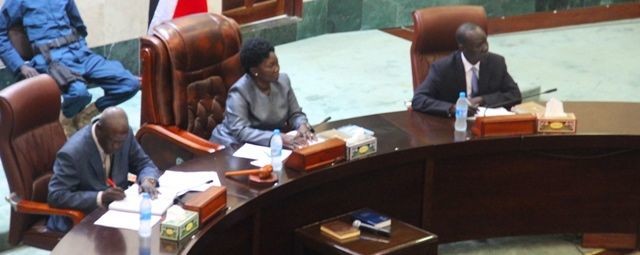Members of South Sudan’s National Parliament have moved for an investigation into the Central Bank of South Sudan and Juba’s dollar black market.
MP Festo Faustino Kumba requested an investigation into the causes and consequences of the parallel black market in South Sudan.
“Whether we admit it or not the black market for foreign exchange is already a booming business in South Sudan,” Kumba said.
“How is the parallel black market for hard currency sustained in this country, and who are the role players and the main beneficiaries? Where does the bulk of foreign currency transaction through the black market come from and go to?”
Deputy Speaker Yasmin Samuel recommended sending two committees of public accountants and economists to carry out the investigation and report back within one week so parliament could decide whether to summon the Central Bank governor over the matter.
The Central Bank of South Sudan manages oil revenues received in dollars on behalf of the South Sudanese government and also provides dollar exchange to select commercial banks and foreign exchange bureaus.
Lately, commercial banks are struggling to access dollars. Informal vendors, however, have large stacks of cash for exchange.
South Sudan’s Central Bank sells 100 USD to commercial banks at 296 SSP, which then sell somewhat higher at about 317 SSP for 100 USD. This compares to a significantly higher black market exchange rate of 475 SSP for 100 US dollars, according to street vendors in Custom and Juba Market.
Minority leader Onyoti Adigo said there is no serious supervision from the Central Bank to control commercial banks and foreign exchange bureaus.
Adigo said the auditor general must investigate how the Central Bank allocates dollars to commercial banks and other institutions. He said they need to know the sources of currency for the black market.
Photo: Second Deputy Speaker Hon Yasmin Samuel chaired the sitting today




